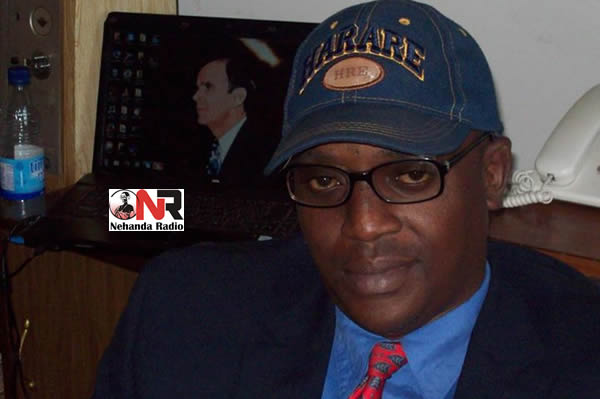By Tau Tawengwa
Firstly, ‘Chivanhu’ can be defined as the ancient spiritual and traditional practices of the Shona people. These practices include ancestral worship, divination, witchcraft, traditional rituals and acknowledgement of holy places and shrines, to name a few.

Interestingly, the 2012 Zimbabwe census says that Zimbabwe is predominately a Christian country, as some 85% of the population claims to be Christian.
However, after digging deeper, I concur with the view that most Zimbabweans who claim to be Christian actually did not “resign from the African religion, nor did they abandon African culture completely; they have maintained dual membership.”
Traditional Beliefs in Africa
Now, until I read a report from the Washington based Pew Research Centre, I underestimated the extent and impact of traditional religious belief in Africa.
I mean, who knew that in some African countries “half or more of the population believes that sacrifices to ancestors or spirits can protect them from harm?”
Furthermore, did you know that “roughly a quarter or more of the population in 11 [African] countries say they believe in the protective power of juju (charms or amulets), shrines and other sacred objects?”
In addition, did you know that “upwards of one-in-five people in every [African] country say they believe in the evil eye [that is]… the ability of certain people to cast malevolent curses or spells?”
Now, let us zone in on Zimbabwe.
According to reports, recently, a ‘traditional healer’ from Muzarabani appeared in court in Harare.
Apparently, he stood accused of “robbing a prostitute [that] he was contracted to help ‘attract more clients.’”
It appears she welcomed the “healer” into her home to conduct ‘rituals,’ but things went south and he stole about USD1500 from her.
Elsewhere, in Masvingo, reports allege, “a 68-year-old man has been sentenced to 20 years in jail for raping his 3-year-old granddaughter on the instructions of a traditional ‘healer.’”
Apparently, the man told the court “that he raped the minor after a local traditional healer told him to bed a minor if he wanted to be rich.”
Also, in July 2015, “a 71-year-old Highfield traditional healer allegedly raped a 17 year old girl who was sent to him for a ‘cleansing’ ceremony by her family.”
Apparently, “the girl was told to engage in sex with at least nine men as part of the cleansing process.”
Rational Belief vs. Irrational Belief
This information got me thinking.
A famous German social theorist once said, “Magical and religious forces, and the ethical ideas based upon them, have… always been among the most important formative influences on the conduct of life.”
In simple terms, this means that our religious ideas and beliefs directly influence our social behavior.
So, for example, because of belief, certain tribes in East Africa continue to perform female genital mutilation as a traditionally prescribed means of controlling female libido.
Yet, my question is, how do we distinguish between rational belief and irrational belief?
In other words, how do we distinguish between ‘good faith’ and ‘bad faith’ when it comes to Chivanhu?
Personally, as a man who has several female family members and friends, it bothers me to think that there are people out there who can actually rationalize abuse, rape and pedophilia under the context of Chivanhu. Clearly, that is bad faith.
The problem, perhaps, is that Chivanhu, unlike other religious teachings, (take Christianity and Islam for instance) is not codified.
This means it does not have its teachings compiled into a single text like the Bible.
As a result, believers in Chivanhu have to rely upon unreliable and unrecorded oral history as well as dubious traditional healers for guidance.
That is not an easy thought to digest when one considers the aforementioned reports of traditional ‘healers’ who rob prostitutes and rape teenagers.
Perhaps that is why Zimbabwe appears to be a conflicted country.
On the one hand, we flaunt our Christianity and claim to have one of the most literate and educated societies in Africa.
On the other hand, we have a propensity for ‘voodoo economics’ which are best characterized by images of politicians considering whether Chivanhu can supernaturally extract diesel from a rock.
I suggest that someday, someone should rationalize Chivanhu, by summarizing all its teachings, laws and rituals into a singular text that its own believers and practitioners can be held accountable to.
Conclusion
Section 19(c) of the Zimbabwean constitution emphasizes that the state must adopt policies and measures that protect children from abuse, while section 81(e) obligates the Zimbabwean state to protect children, (that is people under 18 years of age) from sexual exploitation or any from of abuse.
Of particular concern to me in these days, is the frequency of reports of abuse of infants and minor girls under the pretext of Chivanhu.
While the constitution also allows freedom of religion, perhaps it is appropriate for the state to smoke out rogue “healers” and formulate and propagate a code of conduct for Chivanhu practitioners.
Tau Tawengwa is a researcher and author based in Harare. He is the author of Welcome to Africa, a kindle e-book inspired by the story of Itai Dzamara.






